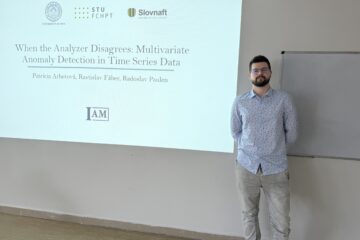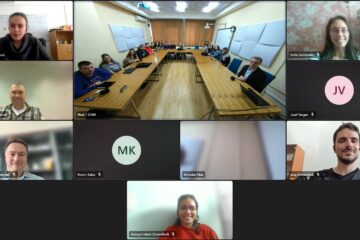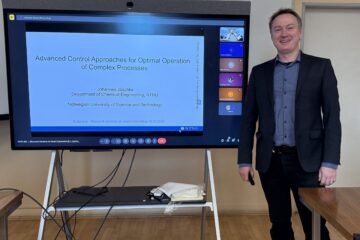On October 11, we organized a scientific seminar on “Modeling, Simulation and Environmental Analysis of Plastic Waste Pyrolysis: Are We There Yet?“. Marco Vaccari, an assistant professor at the University of Pisa, Italy, led the seminar, which was organized in the framework of the FrontSeat project as part of the seminar series on “Research Seminar on Smart Cybernetics.”

Abstract:
As the global imperative to combat climate change intensifies, a remarkable paradigm shift emerges: the substitution of fossil fuels with the transformative potential of plastic waste. Indeed, this study addresses such a challenge by analyzing the substitution of fossil fuels with a more sustainable resource for energy production, i.e., car fluff pyrolysis. The novelty of this work is to elucidate whether fuels produced by car fluff pyrolysis can be considered an environmentally responsible pathway for renewable energy generation, according to the emissions assessment methodology reported in the European Union’s Renewable Energy Directive II (RED II). For this purpose, the car fluff pyrolysis process is adopted as a case study to fully understand how each process facility or utility stream contributes to the emissive scenario. By repurposing the automotive waste stream, this research contributes to boosting waste reduction and renewable energy generation simultaneously, aligning with RED II objectives for sustainable energy production and leveraging advanced modeling techniques. In particular, UniSim Design© is used to optimize the heat integration system, minimizing energy wastage by efficiently recovering and reusing heat within the process. This purpose is also compliant with minimizing the supply of energy coming from external sources, which often involve the combustion of fossil fuels with their associated greenhouse gas emissions. The findings of this research satisfy sustainability goals, regulatory compliance, and the overall environmental needs. Moreover, by optimizing the plant’s heat integration system and reducing emissions, it is also possible to ensure its long-term viability in a changing regulatory environment.
This project has received funding from the European Union’s Horizon under grant no. 101079342 (Fostering Opportunities Towards Slovak Excellence in Advanced Control for Smart Industries).





1 Comment
Academic Exchange and Collaboration between UNIPI and STUBA - FrontSeat · October 21, 2024 at 11:19 am
[…] Friday, MV, for the first time, led the seminar Modeling, Simulation and Environmental Analysis of Plastic Waste Pyrolysis: Are We There Yet? for the series of Research Seminars on Smart Cybernetics. He presented recent findings on […]